Exercise Habits That Slow Down Aging After 50, Science Says
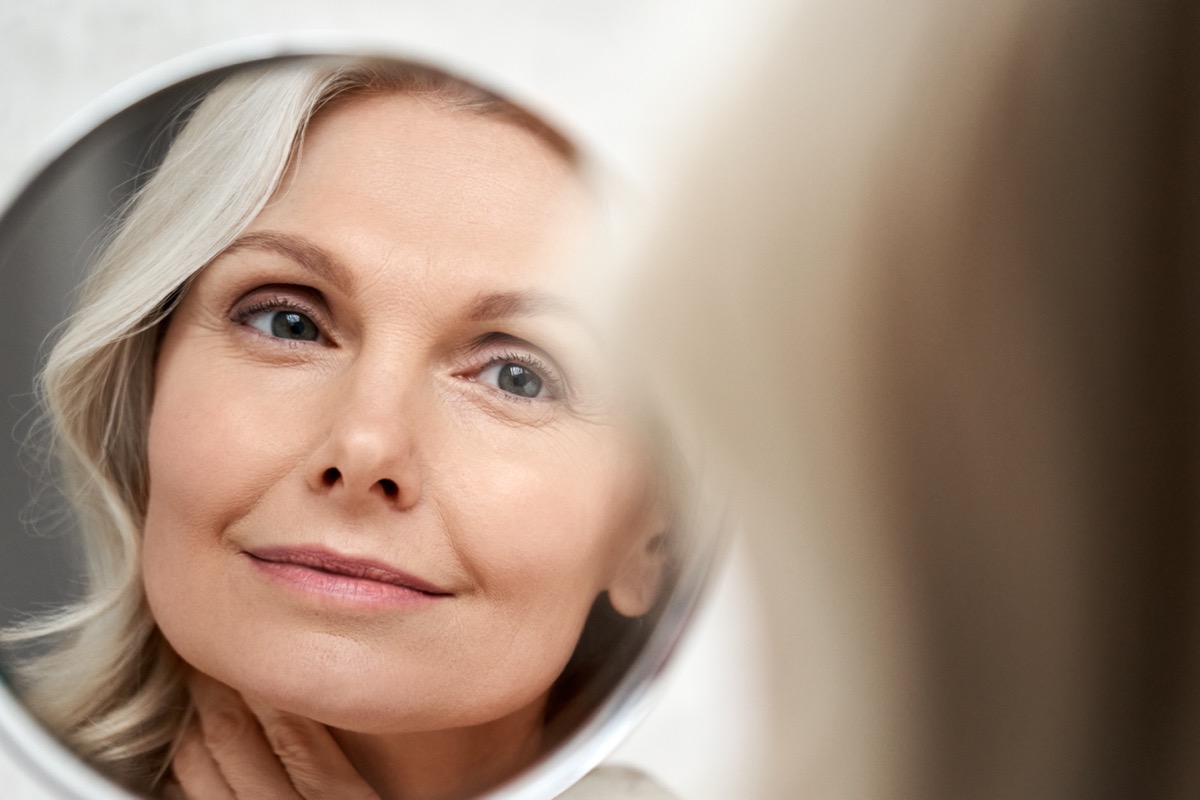
Humans have been chasing after a legitimate fountain of youth for centuries, and the search continues to this very day. A recent survey even reports that 77% of Americans consider “aging gracefully” to be among their top priorities. Moreover, that same research also found that over half of Americans (54%) have actually tried an anti-aging “hack” or tip they saw on YouTube.
Legends about magical fountains and click-bait videos may be momentarily attractive, but at the end of the day, the best way to keep your body young is to live a healthy, well-rounded lifestyle. You’ve heard it ad nauseum your entire life, but it bears repeating: Eat clean. Sleep well. Exercise. Sticking with these health pillars may not keep you perpetually 25 years old, but it will help slow down bodily aging processes as much as can be reasonably expected.
For example, this study published in the scientific journal Gut tells us that eating a Mediterranean diet characterized by lots of fish, fruit, nuts, and vegetables promotes optimal aging and robust brain/physical health well into old age. On the other hand, however, another study published in Obesity Reviews finds obesity actively accelerates the bodily aging process.
Suffice to say, there are no shortcuts when it comes to slowing down aging. You’re going to have to put in the work. The good news is it’s never too late to get started, especially when it comes to breaking a sweat. Plenty of research tells us that even older adults over the age of 50 can combat the effects of aging by implementing a few exercise habits and routines. Read on to learn more, and next, don’t miss 3 Major Secrets to Living to 99, According to Betty White.
HIIT
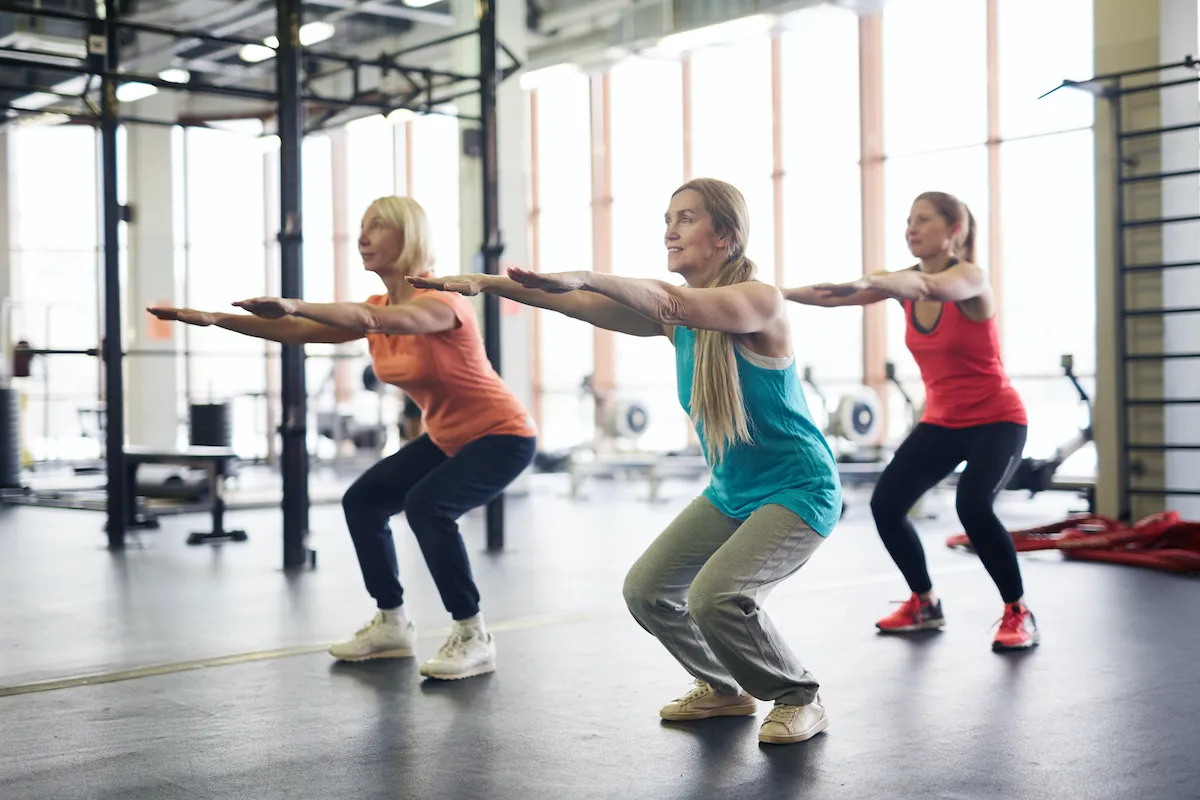
HIIT, short for “high-intensity interval training,” has picked up some serious popularity in recent years. Characterized by short bursts of intense movement followed by a shorter period of rest repeated cyclically, HIIT is more than just the latest fitness fad.
This study published in Cell Metabolism reports HIIT can significantly reverse cellular and muscular aging processes in older individuals. As we age, our cells’ mitochondria gradually lose the ability to generate energy. However, this work indicates HIIT jumpstarts aging cells to create more proteins, essentially “stopping” the process of aging at the cellular level.
Researchers asked a collection of either younger (18-30 years old) or older adults (65-80 years old) to engage in one of three exercise programs: HIIT, more traditional strength training, or a combination of both. Only participants assigned to the HIIT or combo groups showed elevated mitochondrial function within their skeletal muscles. Moreover, older adults specifically benefited that much more from HIIT than even their younger counterparts. While young adults assigned to the HIIT cohort experienced a 49% increase in mitochondrial capacity, the older adults saw a 69% increase.
“Based on everything we know, there’s no substitute for these exercise programs when it comes to delaying the aging process,” says study senior author Dr. Sreekumaran Nair. “These things we are seeing cannot be done by any medicine.”
“We encourage everyone to exercise regularly, but the take-home message for aging adults that supervised high-intensity training is probably best, because, both metabolically and at the molecular level, it confers the most benefits,” he adds.
Related: Sign up for our newsletter for the latest health and fitness news!
Aerobic exercise
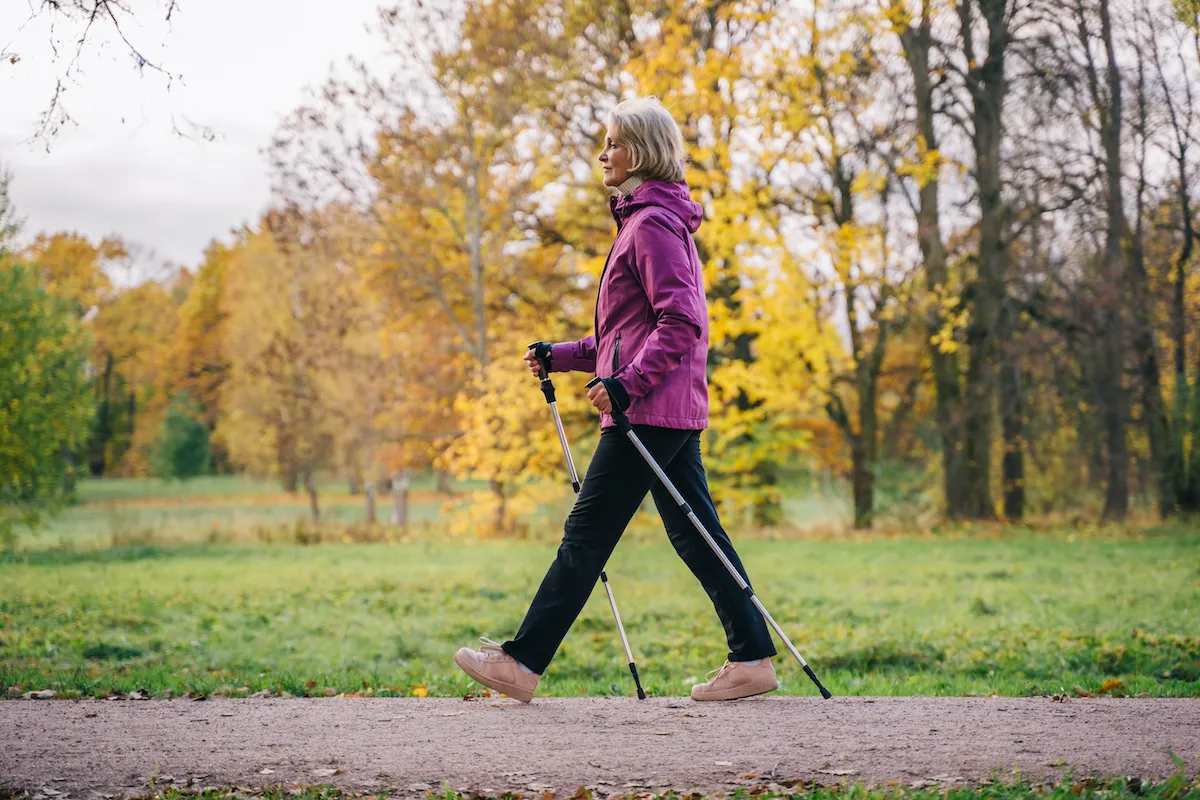
It’s very common for older adults to deal with at least some cognitive decline or difficulty remembering details. Even if you’ve already noticed you’ve become a bit more forgetful lately, one study finds that just six months of aerobic exercise can help reverse the effect of aging on the brain.
Over 200 older adults with an average age of 66 were recruited for this research and completed a series of cognition and memory tests to start. Then, after engaging in a six-month aerobic exercise program (3 sessions per week), participants took another round of cognitive tests. Across the board, the older adults performed much better on the tests after the aerobics program. More specifically, verbal fluency (the ability to recall information) scores increased by 2.4% and mental flexibility went up by 5.7%.
“This change in verbal fluency is what you’d expect to see in someone five years younger. Our study showed that six months’ worth of vigorous exercise may pump blood to regions of the brain that specifically improve your verbal skills as well as memory and mental sharpness,” lead study author Marc J. Poulin explains. “At a time when these results would be expected to be decreasing due to normal aging, to have these types of increases is exciting.”
“As we all find out eventually, we lose a bit mentally and physically as we age. But even if you start an exercise program later in life, the benefit to your brain may be immense,” he continues. “Our findings may be important, especially for older adults at risk for Alzheimer’s and other dementias and brain disease.”
Related: 5 Sneaky Tricks for Enjoying Exercise After 50, Experts Say
Dancing
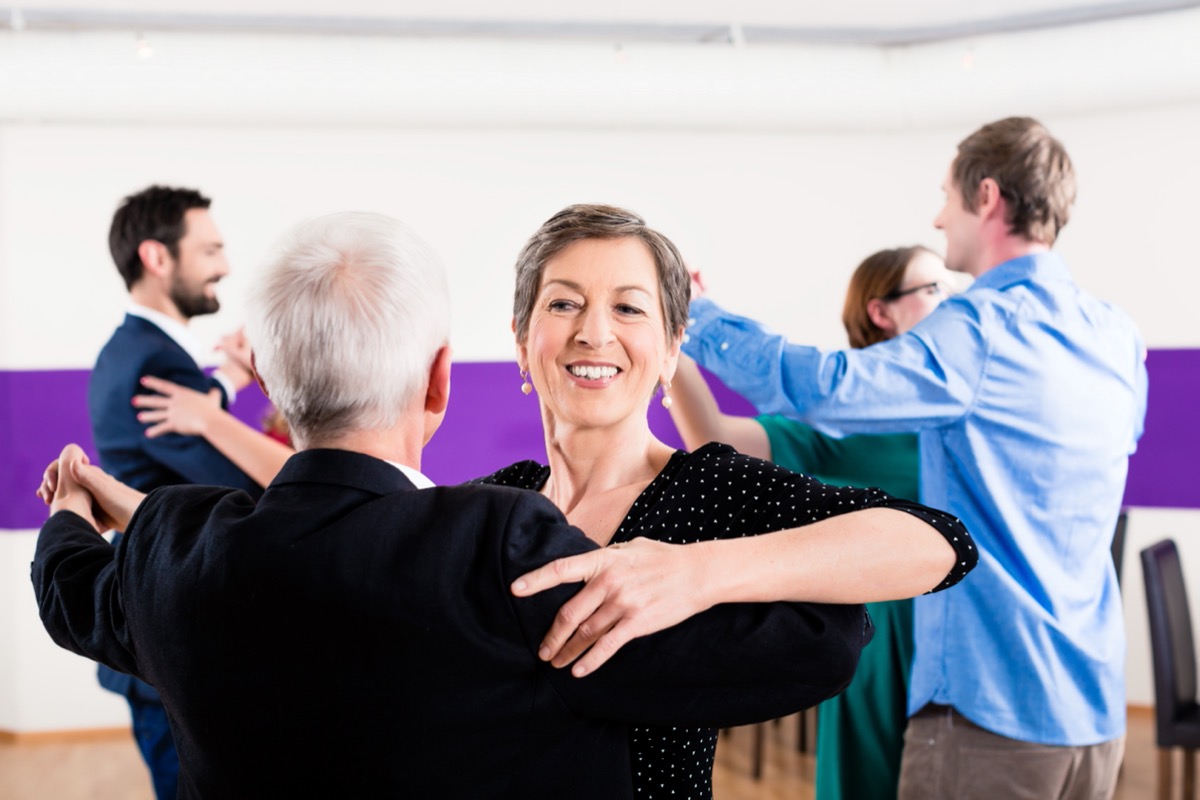
Who says exercise has to be a drag? If you can’t get into traditional workout variations, consider learning a few dance moves. Research published in Frontiers in Human Neuroscience even suggests dancing may be more effective at turning back the hands of time than other forms of exercise.
Researchers separated a group of older adults into two cohorts. One group was taught a variety of new dance routines for 18 months, while another engaged in a series of endurance exercises for the same time period. Now, while both groups showed signs of reversed aging within their brains, it was only the dancing group that also showed marked improvements in their balance. All in all, the research makes a strong case that dancing can slow two common complaints associated with old age: cognitive decline and poor balance.
“In this study, we show that two different types of physical exercise (dancing and endurance training) both increase the area of the brain that declines with age. In comparison, it was only dancing that led to noticeable behavioral changes in terms of improved balance,” explains lead study author Dr. Kathrin Rehfeld, based at the German Center for Neurodegenerative Diseases, Magdeburg, Germany.
“I believe that everybody would like to live an independent and healthy life, for as long as possible. Physical activity is one of the lifestyle factors that can contribute to this, counteracting several risk factors and slowing down age-related decline. I think dancing is a powerful tool to set new challenges for body and mind, especially in older age,” she concludes.
Related: The Best Workouts for Stronger Muscles After 50
Stay consistent for your immune system
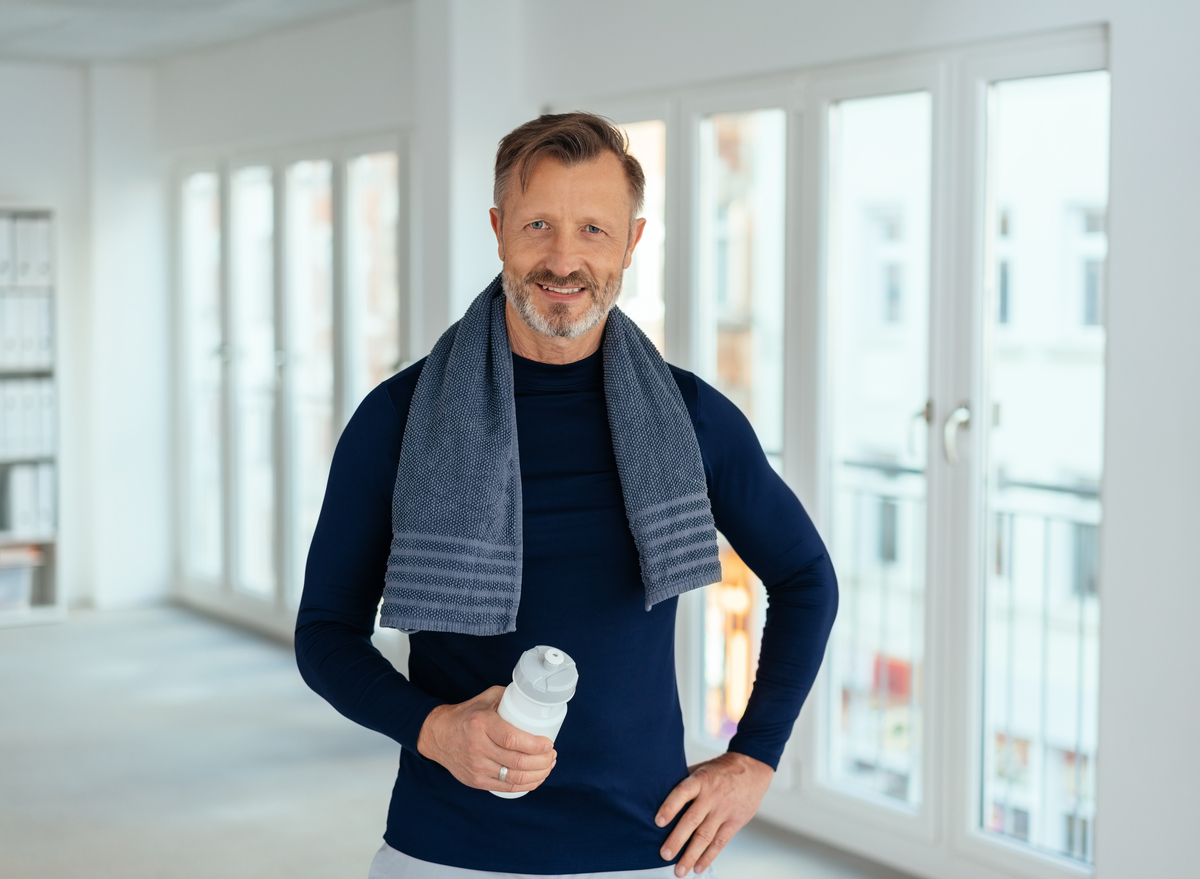
There are plenty of reasons, especially nowadays, to pursue a stronger, younger immune system. Luckily, science tells us that regularly going out for a bike ride can help promote just that. Published in Aging Cell, the study examined and compared a group of regular cyclers (ages 55-79) with another group of similarly aged individuals living a largely sedentary lifestyle.
Predictably, the cyclists were in better overall shape. But, the real notable finding was that the cyclists also had immune systems typically seen in much younger individuals. More specifically, the cyclists’ thymus glands appeared much younger than they should have been. The thymus gland is responsible for creating important immune cells known as T cells, and usually begins to shrink and become less effective around the age of 20. The cyclists’ thymuses, however, were producing just as many T cells as a much younger individual.
If cycling isn’t for you, opt for something similar like running or swimming. The key takeaway here is to find an enjoyable exercise and stick with it consistently.
“Find an exercise that you enjoy in whatever environment that suits you and make a habit of physical activity. You will reap the rewards in later life by enjoying an independent and productive old age,” concludes Norman Lazarus, Emeritus Professor at King’s College London.
For more, check out The Best Way to Get a Lean Body After 50, Science Says.








